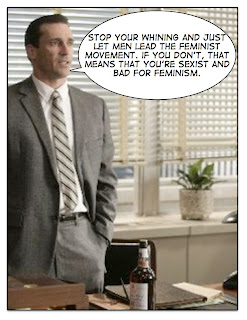A few days ago, somebody posted this interview with Kathleen Hanna of Bikini Kill and Le Tigre in ontd_feminism: In the interview, Hanna discusses how she feels about donating her zines and other papers to the New York University Library. More information about this is available in this article at
Continue readingTag: brainquake
Feminist Mom in Montreal: Kathleen Hanna on leadership
A few days ago, somebody posted this interview with Kathleen Hanna of Bikini Kill and Le Tigre in ontd_feminism:
In the interview, Hanna discusses how she feels about donating her zines and other papers to the New York University Library. More information about this is available in this article at Village Voice:
After a series of trivializing articles appeared in Newsweek, USA Today, and some alternative press outlets, many in the Riot Grrrl movement called for a media blackout, which left much of Riot Grrrl unrecorded in anything other than private and piecemeal fashion. A Riot Grrrl archive would thus function as a remarkable resource, providing scholars of feminism, gender theory, and music history with a trove of unpublished and undocumented primary sources. As Jenna Freedman, a librarian who maintains a zine collection at Barnard College, explains, “I think it’s just essential to preserve the activist voices in their own unmediated work, especially because of the media blackout that they called for. What the young women have to say in the unedited, un–’corporate stamp of approval’ way is really powerful.”
Another thing that Kathleen Hanna discusses in this interview is leadership:
I want more interesting leaders. I think the thing that um is really hard for feminist women who are also interested in challenging like all kinds of oppression is that we’re freaked out about leadership, and so there’s not more interesting leaders, and a lot of times we kill off our own leaders. I mean not because I think because we’re women but because we’re in a culture that you know we create products and then we destroy those products, the same way that we lift people up and it’s like the kill your idol syndrome, and then we’re like, “They’re not good enough, and this is wrong,” and we get all picky about everything and I just, I don’t know, I just wish there was more feminist leaders to choose from and more variety.
I think I agree with her. A recent example of “kill your idol syndrome” is some of the negative reaction to Jen McCreight’s Boobquake. And maybe we were all a little hard on McCreight:
The main feminist objection to Boobquake seemed to be that the women who participated were letting ourselves be exploited. They argued that many men reacted to the event with sexist, “Show us your tits!” idiocy—a reaction McCreight should have foreseen, and was therefore responsible for. Even if the intention behind the event was good (a point on which anti-Boobquake feminists differ)—even though the event was initiated by a woman and voluntarily participated in by women—the result was simply another round of female bodies being objectified by men.
Ah. I see.
Women ought not to display our sexuality—because men can’t be trusted. In the presence of a display of desirable female flesh, men will lose control of themselves. Women ought to dress modestly, and ought not to encourage other women to dress immodestly… and if we persist in our immodesty, and men respond by behaving badly, it’s women’s fault.
-Greta Christina
On the other hand, I also agree with Kathleen Hanna that it’s better to have more leaders, and because there were some people who disagreed with Boobquake, Negar Mottahedeh and Golbarg Bashi created Brainquake. Because we had Boobquake and Brainquake, we had more leaders to choose from and we could choose to follow the movement that we were more comfortable with.
Now, don’t think that just because I think that it’s better to have more leaders that I’ve changed my mind about men as feminist leaders. I still think that the oppressor leading the oppressed is counter-productive to the feminist movement. It doesn’t seem that Maymay sees himself as an oppressor, but I’ve noticed some viewpoints from his supporters that are a danger to feminism. There were two comments in particular in response to this debate (one on Maymay’s twitter and the other on the Femquake facebook page) that I found to be very unsettling:
I think it means more when more privileged people acknowledge the problems and contribute to solutions.
and:
If anything, I think it’s better that you’re a man.
If we’re going to place more importance on men’s roles within feminism than on women’s roles, then what’s the point of even having feminism?
If you agree with Maymay that men can be feminist leaders, then I suggest that you read Feminism 101. There are some good articles in their FAQ about what roles men should have in feminism and why. If you read that and you still think that men should be feminist leaders, then we’re not in this together.
Continue readingFeminist Mom in Montreal: Kathleen Hanna on leadership
A few days ago, somebody posted this interview with Kathleen Hanna of Bikini Kill and Le Tigre in ontd_feminism: In the interview, Hanna discusses how she feels about donating her zines and other papers to the New York University Library. More information about this is available in this article at
Continue readingFeminist Mom in Montreal: Brainquake, Femquake, and Anne Brontë
In response to Boobquake, some people who disagreed with the idea came up with Brainquake:
“Everyday women and young girls are forced to ‘show off cleavage’ and more in order simply to be heard, to be seen, or to advance professionally. The web is already filled with images of naked women; the porn industry thrives online and many young girls are already vulnerable to predatory abuse. Violence against women and girls has a direct correlation to the sexualisation of women and girls. The extent of their sexualisation is evident in the hundreds of replies that pour into the ‘Boobquake’ Facebook page where women write, apologetically: ‘I don’t have boobs, not fair’ or ‘Hey, I only have a C cup…’ and ‘What about those of us who no longer have cleavage? They sag too low.'”
“Brainquake’s” creators say Sedighi’s comment was no news to Iranian women, nor was it funny. They note that for the past 30 years, the Islamic Republic has violated women’s rights with what they describe as repressive policies.
“Iranian women have fought back in various ways, one of which has been to dress ‘subversively,’ but as is evident in the Green Movement, it is not their ‘beauty’ or bodies that they have utilized in fighting against a brutal theocracy but their brains, their creativity, art, writings, etc.”
Some people are offended by Brainquake because they feel that it encourages women to feel ashamed of their bodies. In an attempt to unite the two sides, maymay has come up with Femquake:
Both breasts and brains are good for humanity and deserve our respect. Don’t coerce women into being proud of one over the other, or feeling ashamed of either! YES WE CAN all get along.[…]
Part of what that means is that every woman has the prerogative to do as she pleases, from showing off cleavage on Boobquake to showing off intellect on Brainquake. […]
Regardless of your gender, please join Femquake on April 26th, by blogging, tweeting, and publicizing the achievements of women, whether physical, intellectual, or (preferably) both! Tag your blog post with “Femquake” and your tweets with #Femquake to participate.
Since I feel that she is often overshadowed by her sisters Charlotte and Emily, I am writing about Anne Brontë.
A few years ago when I read The Tenant of Wildfell Hall, I was surprised at how bad-ass the book was. It wouldn’t be considered to be “bad-ass” now, but for the 19th century it was ahead of it’s time. The book is about a single mother, Helen Graham, who moves into a new neighbourhood and supports herself by painting. One of her neighbours, Gilbert Markham, discovers that she was not widowed; she had left her husband and was hiding from him. Her real name was Helen Huntingdon. She had been unhappy in her marriage; her husband was an abusive alcoholic. She left him and took her son with her because she felt that her husband was a bad influence on him.
It is easy today to underestimate the extent to which the novel challenged existing social and legal structures. May Sinclair, in 1913, said that the slamming of Helen Huntingdon’s bedroom door against her husband reverberated throughout Victorian England. Anne’s heroine eventually leaves her husband to protect their young son from his influence. She supports herself and her son by painting, while living in hiding, fearful of discovery. In doing so, she violates not only social conventions, but also English law. At the time, a married woman had no independent legal existence, apart from her husband; could not own her own property, sue for divorce, or control custody of her children. If she attempted to live apart from him, her husband had the right to reclaim her. If she took their child with her, she was liable for kidnapping. In living off her own earnings, she was held to be stealing her husband’s property, since any income she made was legally his.
-from The Oxford Companion to the Brontës, by Christine Alexander and Margaret Smith
You may wonder, as I did, why this daring and radical novel receives so little attention compared to Charlotte Brontë’s Jane Eyre and Emily Brontë’s Wuthering Heights. Well, it seems that the responsibility for this slight lies with Charlotte. After Anne’s death at the young age of 29, Charlotte, who had been offended by the content of her sister’s novel, prevented it from being republished.
“Wildfell Hall it hardly appears to me desirable to preserve,” Charlotte wrote. “The choice of subject in that work is a mistake, it was too little consonant with the character, tastes and ideas of the gentle, retiring inexperienced writer.” While Charlotte and Emily’s novels continued to be published, The Tenant of Wildfell Hall fell off the radar. When it was finally republished (shortly before Charlotte’s death) six years after the second edition, there were many omissions which weakened the novel. At this point Charlotte and Emily had gained literary fame while Anne remained unknown; having her novel butchered didn’t help matters.
“My object in writing the following pages was not simply to amuse the Reader,” Anne wrote in the preface to the second edition of The Tenant of Wildfell Hall. “Neither was it to gratify my own taste, nor yet to ingratiate myself with the Press and the Public: I wished to tell the truth, for truth always conveys its own moral to those who are able to receive it.” Well, I hope that Anne Brontë will one day be seen as being equal to her sisters, which she was, and that the honesty in her novel will receive the recognition that it deserves.
Continue readingFeminist Mom in Montreal: Brainquake, Femquake, and Anne Brontë
In response to Boobquake, some people who disagreed with the idea came up with Brainquake: “Everyday women and young girls are forced to ‘show off cleavage’ and more in order simply to be heard, to be seen, or to advance professionally. The web is already filled with images of naked
Continue reading

